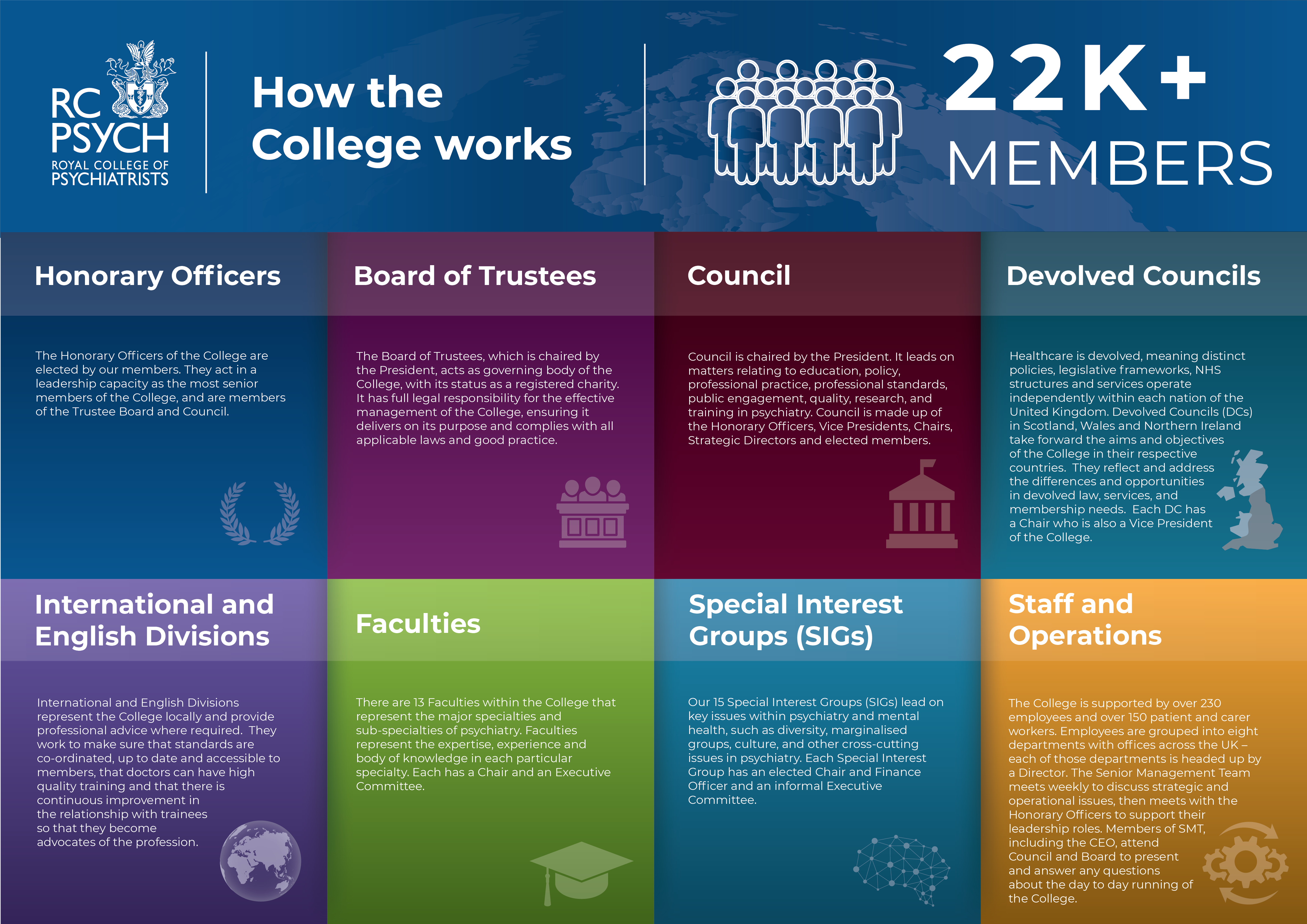How the College works
In order to support our ~21,000-strong membership, the College is run by a number of different governing bodies – from our Trustee board, who are legally responsible for the effective management of the College, through to our Special Interest Groups (SIGs), who help to drive forward the College’s work on key issues like diversity and culture.
The infographic below shows how these different functions work together. Please also see details of our people and how we make decisions.

Find out more about each of the groups who help to run our College:
Honorary Officers
Find out more about our College Officers
Board of Trustees
Find out more about our Board of Trustees
Council
Council is chaired by the President. It leads on matters relating to education, policy, professional practice, professional standards, public engagement, quality, research, and training in psychiatry. Council is made up of the Honorary Officers, Vice Presidents, Chairs, Strategic Directors and elected members.
Find out more about our Council
Devolved Councils
Healthcare is devolved, meaning distinct policies, legislative frameworks, NHS structures and services operate independently within each nation of the United Kingdom. Devolved Councils (DCs) in Scotland, Wales and Northern Ireland take forward the aims and objectives of the College in their respective countries. They reflect and address the differences and opportunities in devolved law, services, and membership needs. Each DC has a Chair who is also a Vice President of the College.Find out more about our Devolved Nations
International and English Divisions
International and English Divisions represent the College locally and provide professional advice where required. They work to make sure that standards are co-ordinated, up to date and accessible to members, that doctors can have high quality training and that there is continuous improvement in the relationship with trainees so that they become advocates of the profession.
Find out more about our Divisions and International Divisions – African, European, Middle Eastern, Pan-American, South Asian and Western Pacific.
Faculties
Find out more about our Faculties

